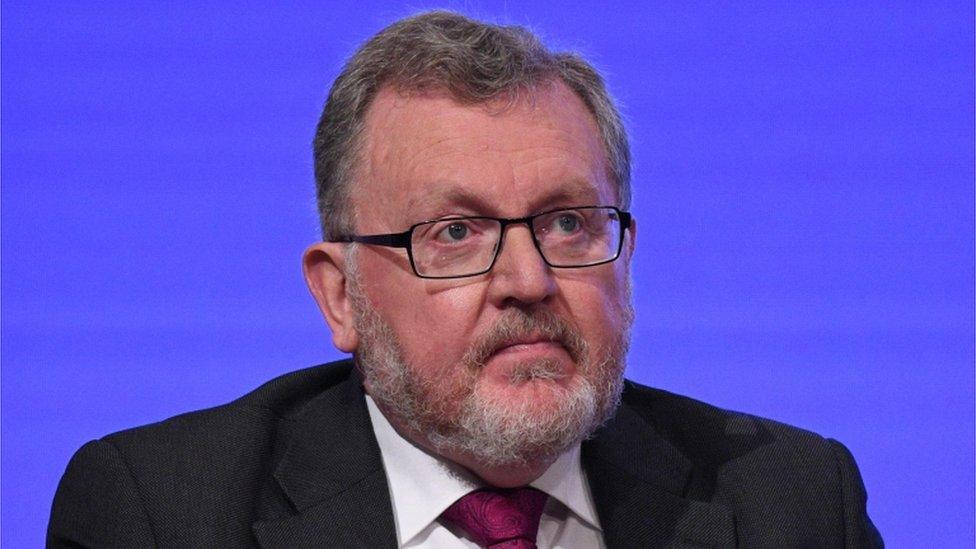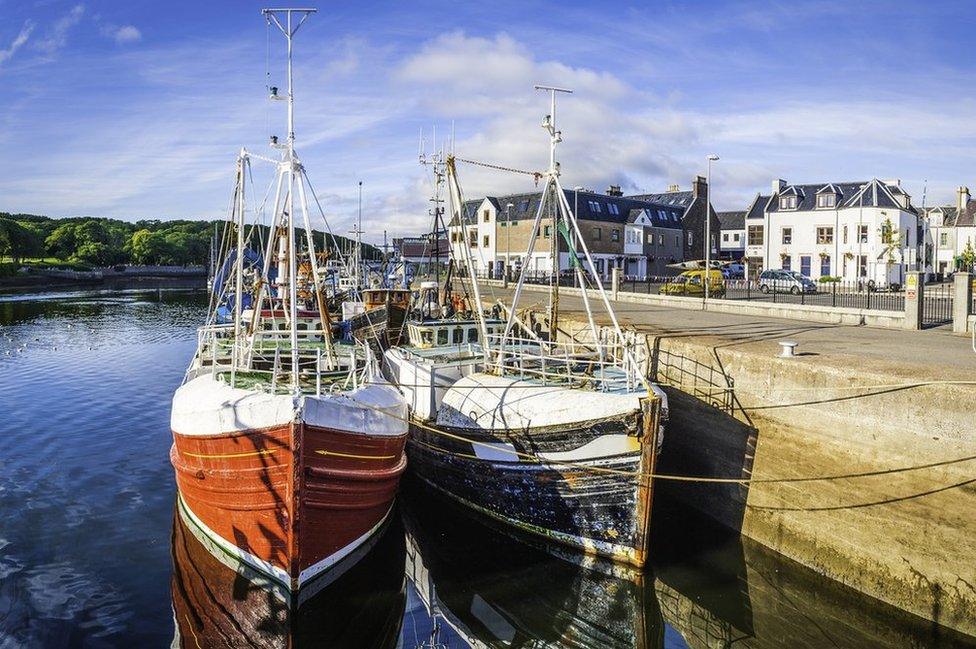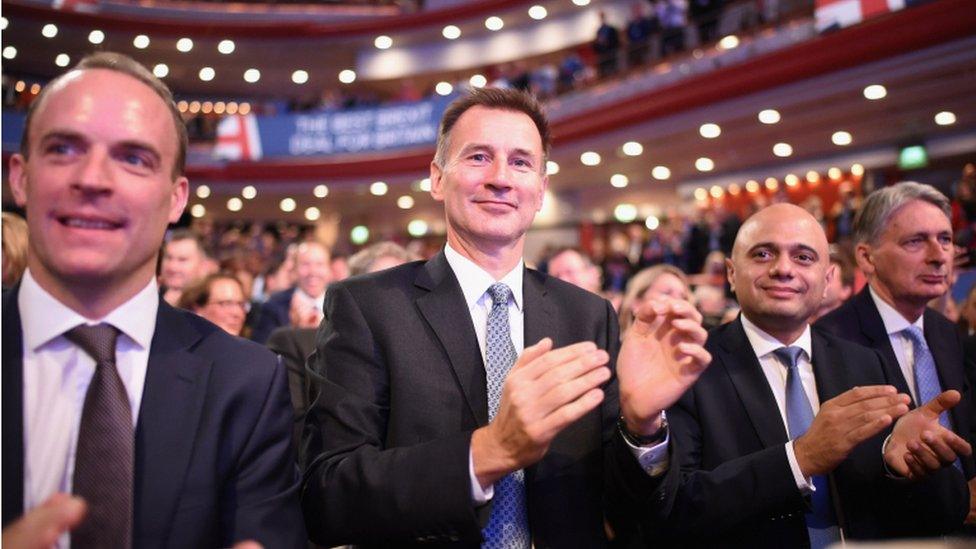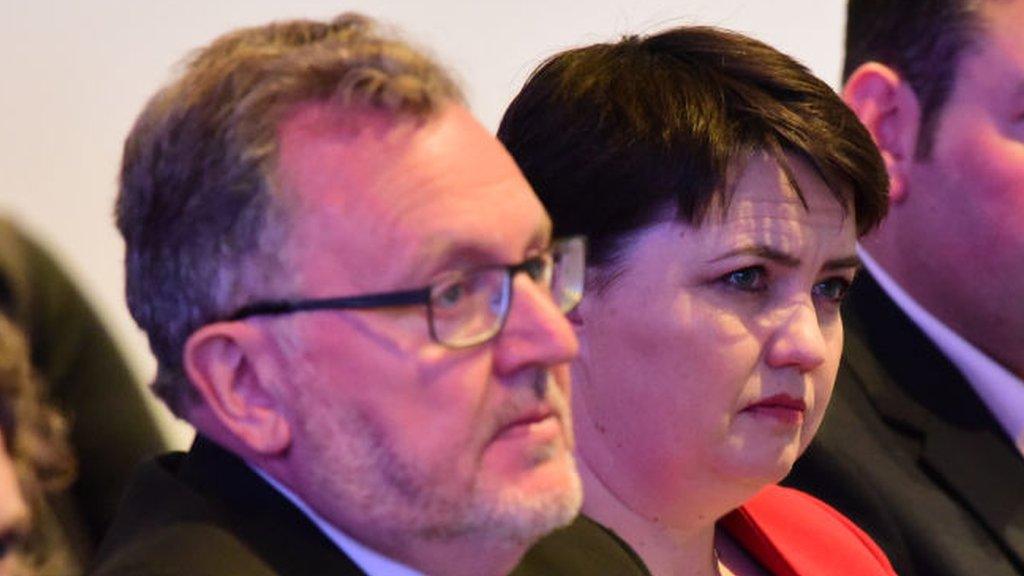Brexit: Mundell 'concern' over Common Fisheries Policy
- Published

Scottish Secretary David Mundell has raised concerns with the prime minister over the timing of the UK's departure from the Common Fisheries Policy.
Theresa May has said the Brexit transition period could be extended "for a few months" if needed.
But Mr Mundell has told the BBC he wants assurances any extension to the transition would not delay exit from CFP beyond the agreed date.
He said that leaving the CFP in December 2020 is "essential".
The current plan is for a transition period of 21 months to smooth the path from Brexit to the UK and EU's future permanent relationship.
But with the two sides so far failing to reach a deal after an EU summit of all its leaders this week, Mrs May said this arrangement could be extended "for a few months", if needed.
'Bad for Scotland'
David Mundell said: "There isn't a specific proposal for extending the transition period for our departure from the EU.
"What I want to be quite clear is that we are still leaving the Common Fisheries policy at the end of 2020.
"I think it is a very important thing for fishermen here in Scotland to know and understand, that that is the date we are leaving the Common Fisheries Policy."
Mr Mundell said that he wanted to make sure the arrangement was at the centre of thinking as EU deal negotiations reach a conclusion.
He said: "Leaving the CFP is an essential part of leaving the EU. Many people here in Scotland voted to leave the EU because they wanted to leave the CFP.
"People who were still Remain voters, even they would admit the CFP has been bad for Scotland, bad for the UK, and they want to leave.
"I want to be absolutely clear that we are leaving the CFP on the date that was set out at the end of 2020, and that we are an independent coastal state for the fisheries council in December 2020 and that remains my priority."
'Genuine fear'
The Scottish Fishermen's Federation has voiced its concern that the EU would continue to have a role in managing British waters.
Chief executive Bertie Armstrong said: "We understand the logic for some of an extension to the implementation period, but for fishing it would make no sense whatsoever to force the industry to operate under the Common Fisheries Policy beyond 2020.
"All the practical international processes for the UK to become an independent coastal state, exercising its rights and responsibilities accordingly, are already in place."

The future of the CFP is a major concern for the fishing industry
He added: "There is a genuine fear among fishermen that any extension to the UK's time in the Brexit waiting room would be used by the EU to place conditions on the return of fish stocks that are rightfully ours via long-term agreements that would be difficult to disentangle in years to come."
The UK is due to leave the EU on 29 March 2019.
During the transition period, which is due to finish on 31 December 2020, the UK's relationship with the EU will stay largely the same.
The Scottish government has dismissed Mr Mundell's comments as "bluster".
A spokesman for Constitutional Relations Secretary Michael Russell said: "No amount of bluster from David Mundell can disguise the fact that he and the Scottish Tories are prepared to sacrifice jobs right across the Scottish economy as they pursue a disastrous hard Brexit.
"The Tories are clearly gearing up for yet another broken promise, this time to Scotland's fishing communities and to the Scottish Fishermen's Federation."
Resignation threat
Earlier this week, Mr Mundell denied that he had threatened to resign over the prime minister's Brexit plan.
It had been reported that both he and Scottish Conservative leader Ruth Davidson told the prime minister that they could not support any different arrangements for Northern Ireland.
They said this would "undermine the integrity" of the UK.
But in an interview with the BBC, the Scottish Secretary insisted it was not a threat to quit.
Mr Mundell told the BBC: "I haven't threatened to resign.
"What I've said is that I regard the integrity of the United Kingdom as absolutely essential in these negotiations.
"We're not going to prejudice the integrity of our United Kingdom and I'm very pleased - as you would see in yesterday's statement - that the prime minister is absolutely behind that."
Meanwhile, the UK government has gone to the Court of Session in Edinburgh in an attempt to block a legal challenge over Brexit.
At issue is whether UK can unilaterally halt the process.
A hearing at the Court of Session on 8 November will lead to a decision whether the case can go to the European Court of Justice.
- Published19 October 2018

- Published16 October 2018

- Published14 October 2018
